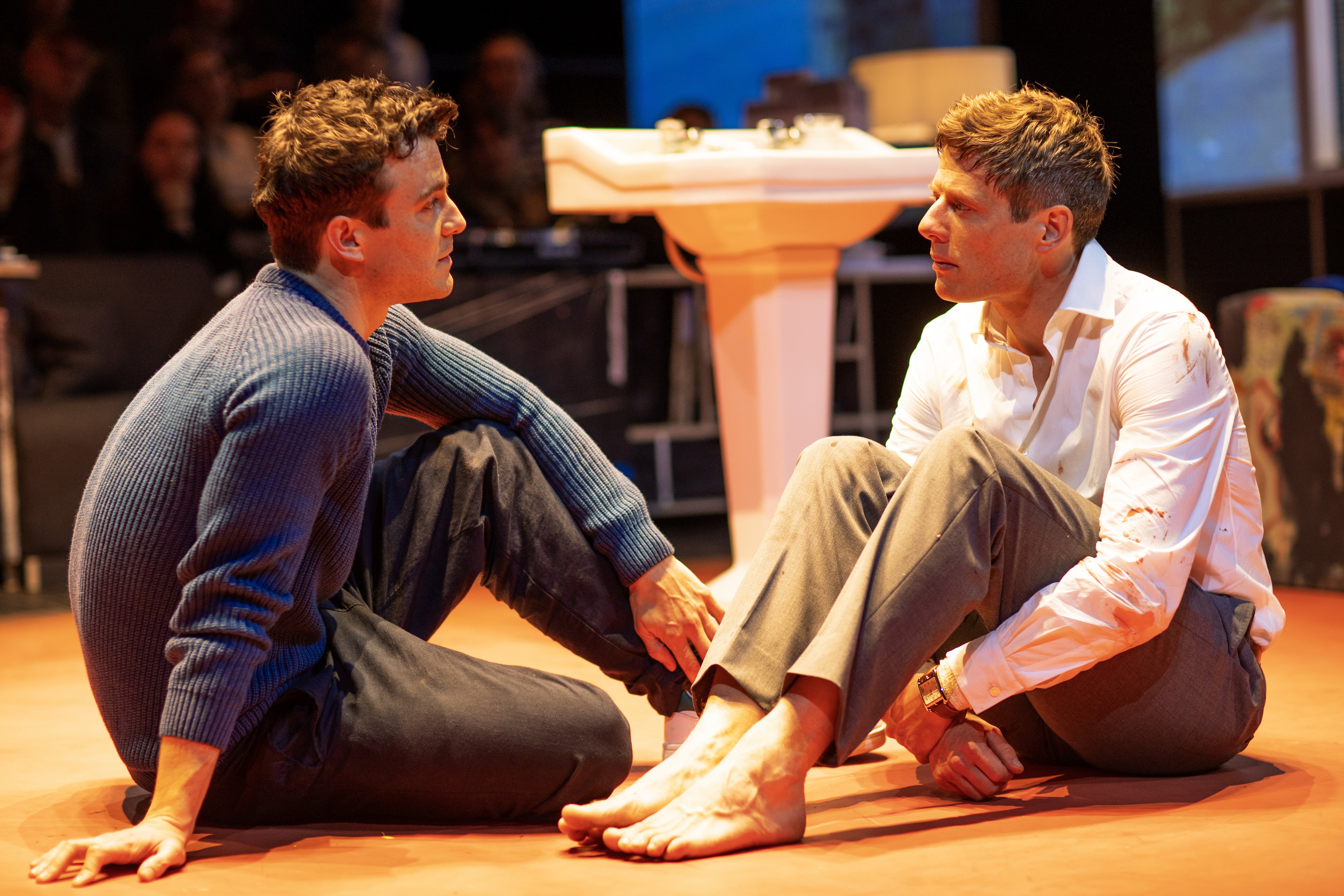Bridgerton’s Luke Thompson says audience member projectile vomited during his controversial play
‘Bridgerton’ star said audience members started wretching in ‘chain reaction’
Your support helps us to tell the story
This election is still a dead heat, according to most polls. In a fight with such wafer-thin margins, we need reporters on the ground talking to the people Trump and Harris are courting. Your support allows us to keep sending journalists to the story.
The Independent is trusted by 27 million Americans from across the entire political spectrum every month. Unlike many other quality news outlets, we choose not to lock you out of our reporting and analysis with paywalls. But quality journalism must still be paid for.
Help us keep bring these critical stories to light. Your support makes all the difference.
Luke Thompson has recalled an unfortunate incident that took place in the dress circle during a performance of his divisive play A Little Life.
Thompson, 35, best known for playing Benedict Bridgerton in Netflix’s regency-era drama series, played Willem in the gruesome four-hour stage adaptation of Hanya Yanagihara’s 2015 novel A Little Life, opposite Happy Valley star James Norton.
The play followed the deeply troubled high-flying New York lawyer Jude (Norton), who relentlessly self-harms after being subjected to years of sexual abuse.
During the show’s run in the West End last year, audience members were reported to have fainted, burst into tears and walked out of the auditorium during some of its more harrowing scenes. These included legs being severed, self-harm and abuse.
In a new interview withThe Guardian, Thompson revealed that the cast were forced to stop a performance when an audience member projectile vomited over other theatre-goers in the dress circle.
“Someone was coughing very loudly during a quiet moment in the play and the show had to stop. It turned out they’d projectile vomited in the dress circle, over other people, who then started retching too, so it was like a chain reaction,” he explained.
He called the incident one of the “craziest” reactions to the show, but admitted that many spectators had physical reactions to the heavy themes depicted.
“I wonder sometimes how much of it is self-perpetuating,” he said. “The more people come expecting graphic content, the stronger they might react. There’s definitely been an uptick in fainting incidents post-pandemic.”

InThe Independent’s one-star review of A Little Life, critic Alice Saville said that people in the audience around her were sobbing and covering their eyes.
“Its star James Norton is pretty much constantly drenched in blood, often naked, and always being either psychologically or physically tortured,” Saville wrote.
“I could feel the people around me sobbing and covering their eyes and sometimes I did too. But I also felt manipulated by its naive and psychologically incurious narrative of abuse.”

Saville concluded that the scenes of suffering were “pornographic” and that “real-life suffering is more complex”.
“If you want to be immersed in other peoples’ pain, go and spend four hours in A&E: it’s cheaper, just as agonising, and you can have a wee whenever you want,” she wrote.
Websites selling tickets for the show warned of suicide, drugs, nudity, self-harm, rape and violence on stage.
When the book A Little Life was released, some criticised it for being trauma porn, arguing that the graphic depiction of Jude’s suffering was unnecessary.
The show’s star Norton said that actors in the play were given therapists and were “very looked after” during its run.
“We do have to go to places that are quite disturbing, but I do feel very supported and able to do it,” he told Radio 4’s Today programme last year.
But he previously told The Independent that taking on the role was one of the most terrifying things he had ever done done.
“I woke up and had moments like, ‘What am I doing voluntarily going into this place, this darkness?” he said.
“Hanya wanted to write a book about a protagonist who ultimately was not on the path to salvation, and there is no light at the end, and it was the antithesis to the American dream. And you do question that. ‘Why would I put myself through this? Multiple times? For three months?’ But it being this scary and terrifying prospect is the reason why you have to do it.”

Join our commenting forum
Join thought-provoking conversations, follow other Independent readers and see their replies
Comments